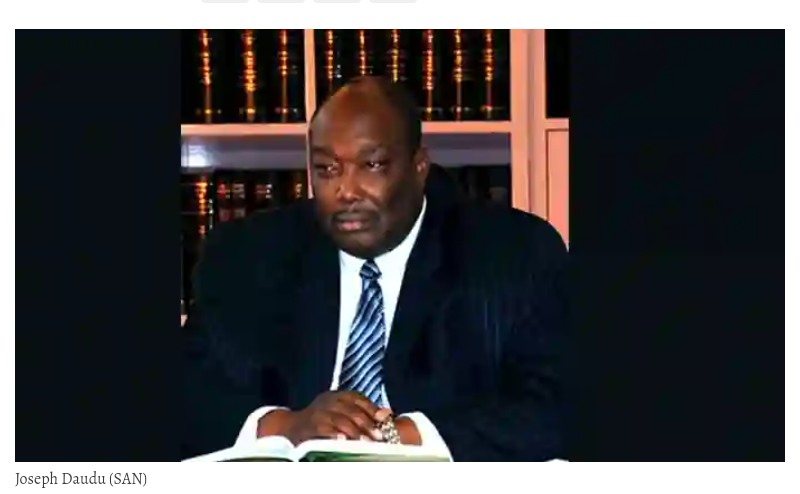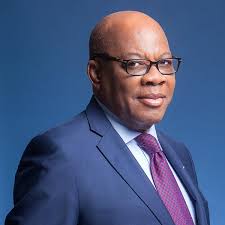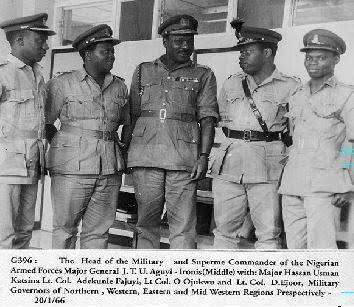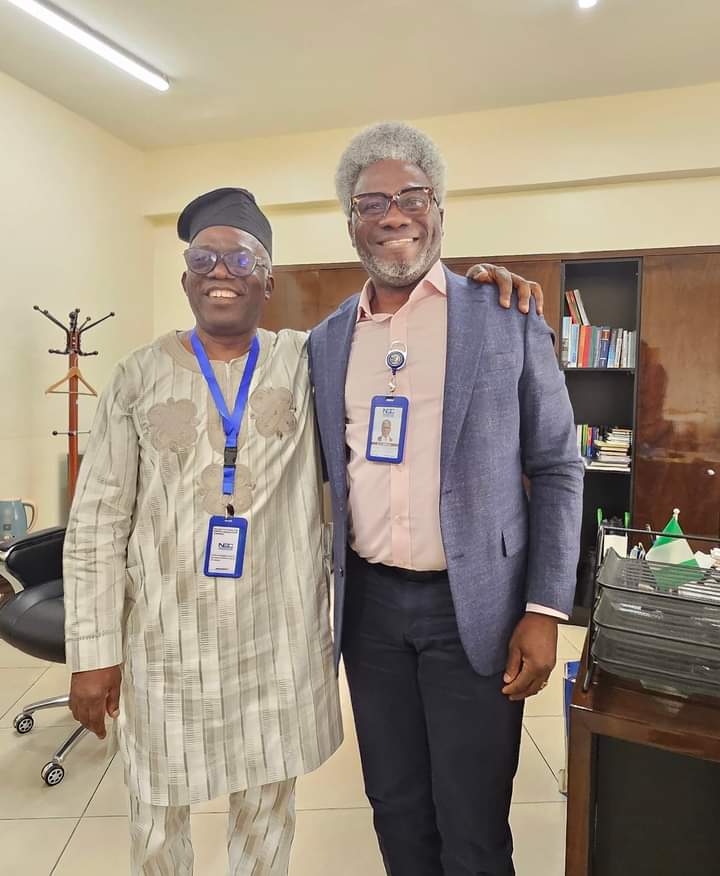Kemi Badenoch: Reaping where they did not sow…

By Bola BOLAWOLE
[email protected] 0807 552 5533
You must have followed the Kemi Badenoch controversy: the wily Nigerian politicians’ penchant to ride on people’s back suffered a ghastly diplomatic accident! Thinking they could use her to shine and claim undeserved credit, Mrs. Kemi Badenoch, the newly-elected British Leader of Opposition/Shadow Prime Minister, Britain’s budding “Iron Lady” cast in the mould of Margaret Thatcher, gave a top Nigerian government official “the ignore”, to quote the inimitable Fela’s lawyer, the late Kanmi Ishola-Osobu! What a bloodied nose without as much as throwing a punch!
Here, in “Tan’fe’ani and Kemi Badenoch”, Professor Babafemi A. Badejo not only lay bare the crass illiteracy of an egocentric government official and a loquacious politician seeking relevance but also analysed the gaffe that may return to haunt this and succeeding Nigerian governments for some time to come. Read on:
“Any Yoruba speaker of a certain age would easily link Tan’fe’ani with Ebenezer Obey’s philosophical lyrics: “Tan’fe’ani, tan’fe’ani: Eniyan o fe ni fo’ro, tan’fe’ani”. Literally, Obey’s lyrics suggest that human beings resent the success of others and would rather prefer their demise or downfall.
“This came to my mind with respect to a good number of commentaries made by Nigerians on the result of the leadership election of the British Conservative Party, which saw Mrs. Olukemi (Kemi) Badenoch breaking the ceiling to become the first black person to lead a major party in the United Kingdom, in the combined sense of being the leader of His Majesty’s Opposition, a potential Head of Government or Shadow Prime Minister, so to say.
“Mrs. Abike Dabiri-Erewa, the CEO of the Nigerians in Diaspora Commission (NIDCOM), felt it was her duty to congratulate and celebrate Badenoch in the regular Nigerian style of identifying with the successful. However, Dabiri-Erewa claimed that her gesture towards Badenoch was met with rejection. Rather than keep quiet as a diplomat/consular official would do, Dabiri-Erewa thought it newsworthy to take to Channels TV to question the “Nigerianess” of Kemi.
“In a display of limited understanding of international dynamics, Mrs. Dabiri-Erewa made an ill-conceived comparison by highlighting her support for Ms. Chidimma Adetshina, the first runners-up at the recently-concluded Miss Universe competition, while implying that Mrs. Badenoch might one day return to seek her assistance. But this is not a Nollywood storyline, for goodness sake!
“I wish Kemi the occupation of 10 Downing Street but even if she does not become the Prime Minister of the United Kingdom for whatever reason, what would she have lost from the history she has just made? In such a situation where ill-action contributes to Kemi not attaining the top seat, what can Nigeria (or any of its over-rated citizens like Dabiri-Erewa) do you influence British politics?
“It was not only Mrs. Abike Dabiri-Erewa who over-valued her worth and relevance at the international level. Femi Fani-Kayode (FFK), as usual, blasted on all cylinders, casting aspersion on Mrs. Badenoch for “snubbing” the Nigerian government. To think that Mrs. Dabiri-Erewa represented the Nigerian government vis-à-vis the British leader of opposition shows the novice that FFK is (in such matters) in spite of his claim to knowledge. NIDCOM is unknown to the Vienna Conventions on Diplomatic/Consular relations.
“Nigeria’s High Commission in the United Kingdom serves as the legitimate representative of the Nigerian government and, in that capacity, could appropriately extend fraternal greetings to the Leader of the Opposition. Prof. Bola Akinterinwa, despite his complex but well-argued “thesis, antithesis, and synthesis” on this issue, got it right: Mrs. Dabiri-Erewa could have reached out to Mrs. Badenoch privately as a well-meaning Yoruba elder. In my view, her decision to go public on Channels TV, resembling the fiery rhetoric of FFK, only cast them both in the light of “tan’fe’ani”.
“It is important that Mrs. Kemi Badenoch has ignored all the noise, focusing instead on her duties towards building a viable Shadow Cabinet and leading her party as His Majesty’s Leader of Government Opposition. Mrs. Badenoch exercised her associational right by emphasizing her being British. She is exercising a fundamental right known to Nigeria’s 1999 Constitution in section 29. She is not Nigeria’s Ambassador to the UK – and she does not want to be! Too bad for the Nigerians who want to appropriate her!
“Mrs. Badenoch stated publicly that the circumstances of her upbringing drove her out of Nigeria. She has spoken of some of the hardship she endured growing up – like fetching water from a mile away and carrying chairs. She forgot to mention the ubiquitous NEPA that made those of my age depend on lanterns to study! However, I have read many who refute this, arguing that Kemi attended the same school as their children and did not endure the hardship she described.
“Some have, however, overly romanticised the life of the Nigerian academic of the 1990s. My children and I can attest to the hardship we faced when I could not afford basic things as a struggling lecturer who had to care for my immediate relations during a time when public servants were expressly banned from supplementing their income through any form of additional work, whether mental or physical, beyond what the government paid them.
“From all accounts, the late Dr. Femi Adegoke, a.k.a ‘Fariga’ (meaning someone who will not kow-tow or be cowered), Mrs. Badenoch’s father, fought injustice around him, from when he was at Ibadan Grammar School to his time at the College of Medicine, Idiaraba where, as Prof. Oladapo Ashiru informed us, Femi Adegoke’s original ‘Fariga’ was changed to ‘Farigo’, both symbolising a fighting spirit against injustice. Are those examining Kemi considering her early politicisation against corruption, injustice, and military rule, which set her apart from her contemporaries?
“Were the issues Kemi cited as driving her away from Nigeria unique to her time? As an undergraduate, I carried chairs from one classroom to another—something children in public schools of my children’s generation still do. In some parts of Nigeria today, students continue to carry their chairs from home to school. As a child, I fetched water from a stream about five miles away and many children in Nigeria still do due to the normalisation of corruption, perpetuated by critics of Mrs. Badenoch and stemming from leaders who, in a just society, should be in jail for embezzling resources meant for infrastructural development.
“I salute Mrs. Badenoch and appreciate her work. She has more than associated with her primordial roots by not changing or ‘Englifying’ her name. Her appearance remains Yoruba, which is not the same as the associational ‘Nigerianess’ that Mrs. Dabiri-Erewa was searching for. If, against all odds, Mrs. Badenoch’s critical stance resonates with those in political power and leads to a meaningful reduction in the grand theft of our national resources, it would be cause for celebration. Such a shift would represent a significant victory for the vast majority of Nigerians.
“I agree with Mrs. Badenoch that Nigeria is a corrupt country as shown on a daily basis. Some would say that the UK is also corrupt. Fair enough. But there are fundamental differences. Corruption in the UK is not as widespread as it is in Nigeria. Furthermore, British politicians do not boast about corruption as normal, unlike in Nigeria where anti-corruption institutions choose who to prosecute on the basis of the offender’s political party, in the shifting alliances of thieves that we call political parties. Unlike in Nigeria, if you are caught in the UK, you are prosecuted and not given a higher national office as well as national honours!
“David Cameron as British Prime Minister referred to Nigeria and Afghanistan as being ‘fantastically corrupt’. What was President Muhammadu Buhari’s response? He did not walk out of the anti-corruption summit that the UK had called. Instead, he reportedly said he was shocked and embarrassed. His spokesman added that the UK Prime Minister was probably speaking of governments before Buhari’s. We later knew that corruption grew under Buhari, just as many accounts are showing about the current administration of Bola Tinubu.
“Badenoch has rightly added corruption and its debilitating impact on Nigeria as part of her focus. Given the impact of corruption in Nigeria driving immigrants who would have loved to remain in Nigeria to the UK, I hope she does not drop this focus!
“Those who consider themselves more patriotic by criticising Kemi for speaking basic truths should channel their energy into pressuring government at all levels to act responsibly. This will ensure that Kemi and others like her would have no reason to ‘denigrate’ Nigeria, sparing us the need to hang our heads in shame on the international stage.
“I agree with Dr. Sola Oni, the leader of the Yoruba Party in the UK, who differed with Mrs. Badenoch on reparations for slavery, colonialism, and today’s neo-colonialism. As the British leader of opposition, it is understandable that her views are different from ours. It is for us to carry out a principled campaign to change the views of Mrs. Badenoch’s voters.
“A lot is available from sound pan-Africanist positions to try and persuade Mrs. Badenoch to think otherwise. Since the wealth created from the past of short-changing Africa is still being held on to, the British of today cannot reject responsibilities for that past. On our part, we should address the nagging governance problems of leadership deficit and corruption still driving many other Kemis away from here in the ‘Japa’ syndrome that our government appears helpless against”.
Need we say more?
- Former Editor of PUNCH newspapers, Chairman of its Editorial Board and Deputy Editor-in-chief, BOLAWOLE was also the Managing Director/ Editor-in-chief of The WESTERNER newsmagazine. He writes the ON THE LORD’S DAY column in the Sunday TRIBUNE and TREASURES column in NEW TELEGRAPH newspaper on Wednesdays. He is also a public affairs analyst on radio and television.





